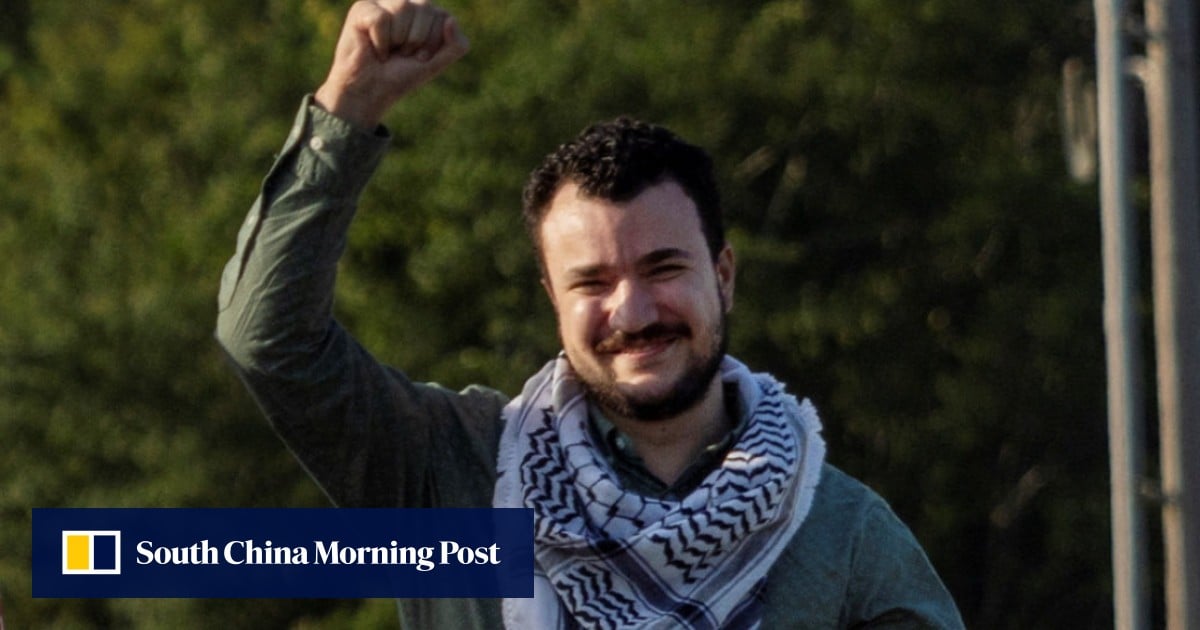Palestinian Activist Mahmoud Khalil Released After 104 Days in Detention
Mahmoud Khalil, a Palestinian activist and former graduate student at Columbia University, was released from US federal immigration detention on Friday after spending 104 days behind bars. His case has become emblematic of a broader effort by the Trump administration to crack down on dissent, particularly among student activists advocating for pro-Palestinian causes.
Journey to Freedom
Khalil walked out of a federal facility situated in Louisiana, his spirit buoyed by the judge’s ruling that finally set him free. He plans to reunite with his wife, a US citizen, and their infant son, who was born during his period of detention. This poignant reunion is bittersweet, reflecting the harsh realities faced by many activists who find themselves swept up in political actions that challenge the status quo.
A Symbolic Fight Against Detention
In a heartfelt statement outside the facility, Khalil expressed, “Justice prevailed, but it’s very long overdue. This shouldn’t have taken three months.” His experience encapsulates the frustration and anxiety faced by many who find their lives disrupted by immigration enforcement, especially those who engage in political activism.
Khalil’s detention initially centered around the Trump administration’s heightened focus on individuals participating in pro-Palestinian protests. This scrutiny raises important questions about freedom of expression and the implications of state power over dissenting voices in America’s democracy.
The Legal Battle
Khalil’s release came after US District Judge Michael Farbiarz examined the details of the case. The judge pointed out that it would be “highly, highly unusual” to continue detaining someone who is a legal resident of the US, especially when there was no evidence to suggest that Khalil posed a flight risk or a danger to the community. “Petitioner is not a flight risk, and the evidence presented is that he is not a danger to the community,” Farbiarz noted emphatically, underscoring the legal parameters that shaped Khalil’s detention.
The Broader Context
Khalil’s activism has been pivotal in drawing attention to the Palestinian cause, especially on college campuses where conversations around Middle Eastern politics often ignite passionate debates. His detention reflects a growing trend where political activism is met with legal repercussions, forcing individuals often into precarious situations where their rights may be compromised.
As Khalil navigates his life following release, the implications of his case resonate. Activists worldwide are observing closely, understanding that his journey is not just a personal struggle but a reflection of the broader battles against political suppression and for civil liberties.
Reunification and the Future
While Khalil’s legal battles may not be entirely over, the immediate joy of reunification with his family is on the horizon. This moment serves as a reminder of the human cost associated with political activism and immigration policies that can tear families apart. As he heads back to New York, the support of his community and the activism surrounding his case will likely shape his path forward.
Khalil’s story, marked by resilience and determination, underscores the intricate balance between activism and the law, illustrating the complexities of living in a society where political beliefs can lead to unexpected consequences.


